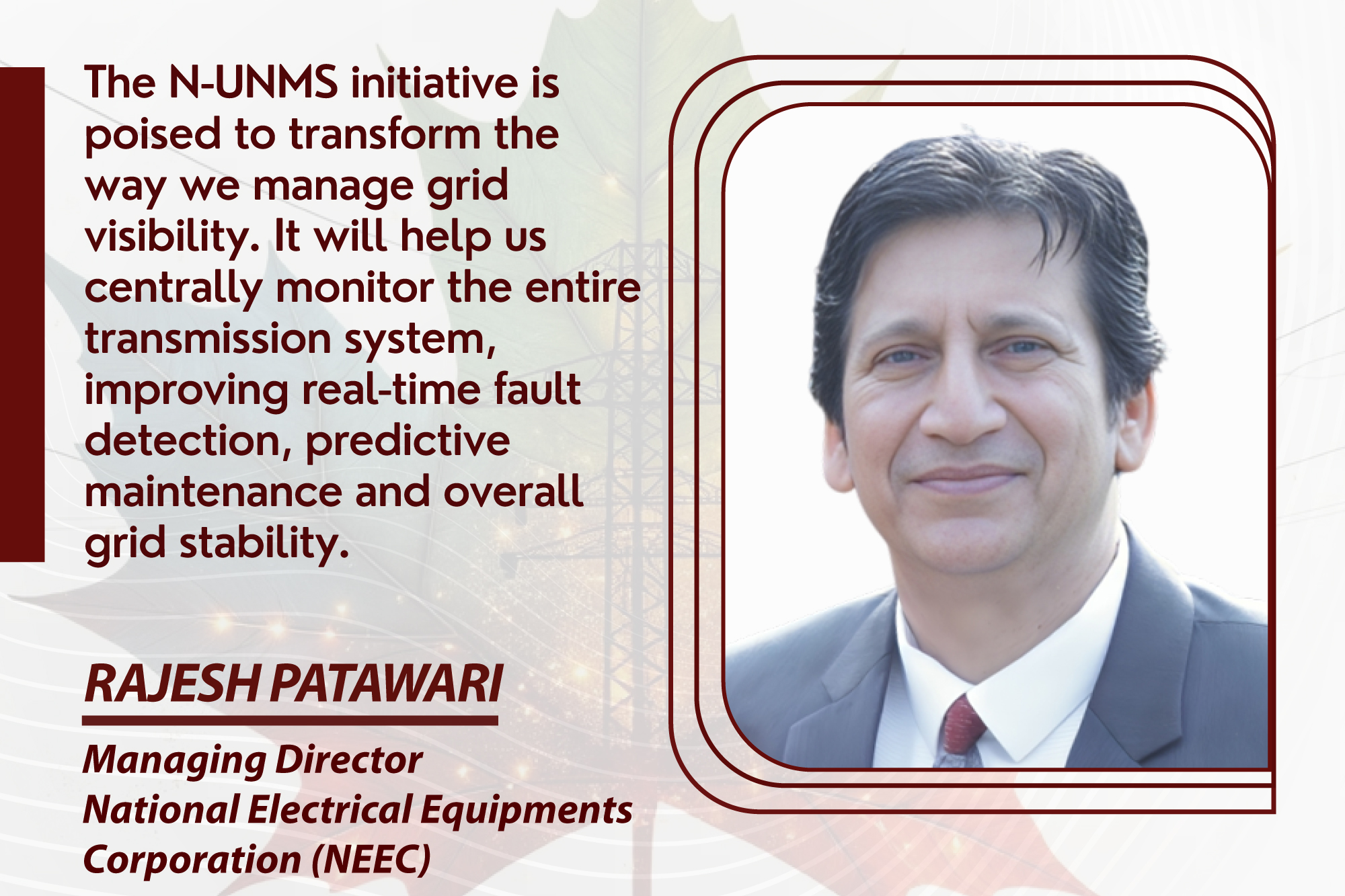NEEC align with BEE star norms for energy-efficient products
By Staff Report July 25, 2025 5:16 pm IST
By Staff Report July 25, 2025 5:16 pm IST

The firm uses CRGO and amorphous core materials and optimises core geometry to minimise energy losses. The low-loss windings and improved cooling systems further enhance transformer efficiency. 00
The power industry is experiencing a rapid shift to digitalisation, and so is the transformer sector. Rajesh Patawari, MD of National Electrical Equipments Corporation, shares his views on the ongoing changes in the sector that have also impacted his company’s strategies and brought crucial shifts in the product design and application. Let us know from him the latest trends in the transformer market.
How is National Electrical integrating smart features and efficiency in transformer design and manufacturing processes?
Indian transformer manufacturers are now prioritising smart functionalities, digital twins and condition-based monitoring. We are deploying sensor-integrated designs and edge computing devices in our units to detect core heating, oil degradation and harmonic stress early. Additionally, our design team is incorporating AR-assisted inspection tools and modular digital control panels to aid substation automation. Moreover, energy efficiency is embedded in the core design phase at National Electrical. We use CRGO and amorphous core materials and optimise core geometry to minimise energy losses. Low-loss windings and improved cooling systems further enhance transformer efficiency. Our internal design standards exceed IS1180 (Part 1) and Bureau of Energy Efficiency (BEE) star norms, ensuring our units meet the highest benchmarks of energy conservation.
How is renewable energy growth reshaping transformer designs for efficiency and integration?
The growing demand for solar and wind installations has reshaped the demand for transformers in India. There is a surge in need for inverter-duty, bi-directional flow and fast-response transformers. We are developing solar-compatible dry-type transformers, compact substation solutions and battery energy storage system (BESS) transformers. These are tailored for both rural electrification and urban rooftop integrations. Moreover, NE’s commitment to 5-star energy-efficient models comes from the objectives of supporting national energy security and reducing lifecycle ownership costs for Discoms. These transformers substantially reduce no-load and load losses, improving network efficiency and helping states meet their AT&C loss reduction targets. Our latest designs have achieved an efficiency of over 99.5 per cent in specific rating classes.How are the RDSS and PLI schemes accelerating the adoption of smart transformers and manufacturing upgrades at NEEC?
The Central government’s Revamped Distribution Sector Scheme (RDSS) and Production Linked Incentive (PLI) schemes are fuelling capex for smart grid and transformer upgrades. With increased funding, utilities are shifting towards digitally equipped eco-friendly transformers. We have aligned with these trends by investing in robotised coil winding machines, vacuum drying ovens, and digital testing facilities, ensuring that the product meets world-class quality standards. We have also established a dedicated Regulatory Compliance Cell that continually monitors changes in CERC, BIS, BEE, and CBIP norms. Our R&D team collaborates with utilities and consultants to prototype new models tailored to future grid configurations. With the rapidly changing power landscape in the country, we are committed to being a reliable partner in this journey. With smart, resilient and energy-efficient transformers, NE is not just adapting to change; we are also helping shape the next generation of power infrastructure in the country.
How will N-UNMS integration with IoT-enabled transformers improve grid stability and predictive maintenance capabilities?
The National Unified Network Management System (N-UNMS), a flagship initiative of the Government of India, is poised to transform the way we manage grid visibility. It will help us centrally monitor the entire transmission system, improving real-time fault detection, predictive maintenance, and overall grid stability. For transformer monitoring, we can integrate remote diagnostics, overload alarms, and temperature sensing directly into national platforms. At National Electrical Equipments Corporation (NEEC), our transformers are already compatible with IoT-based monitoring, allowing seamless integration with N-UNMS to deliver real-time analytics and predict failure trends more effectively.
We use cookies to personalize your experience. By continuing to visit this website you agree to our Terms & Conditions, Privacy Policy and Cookie Policy.